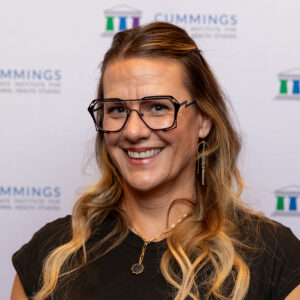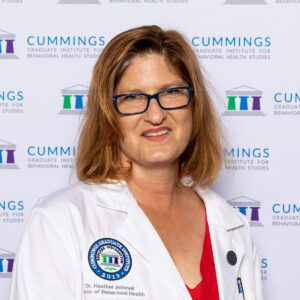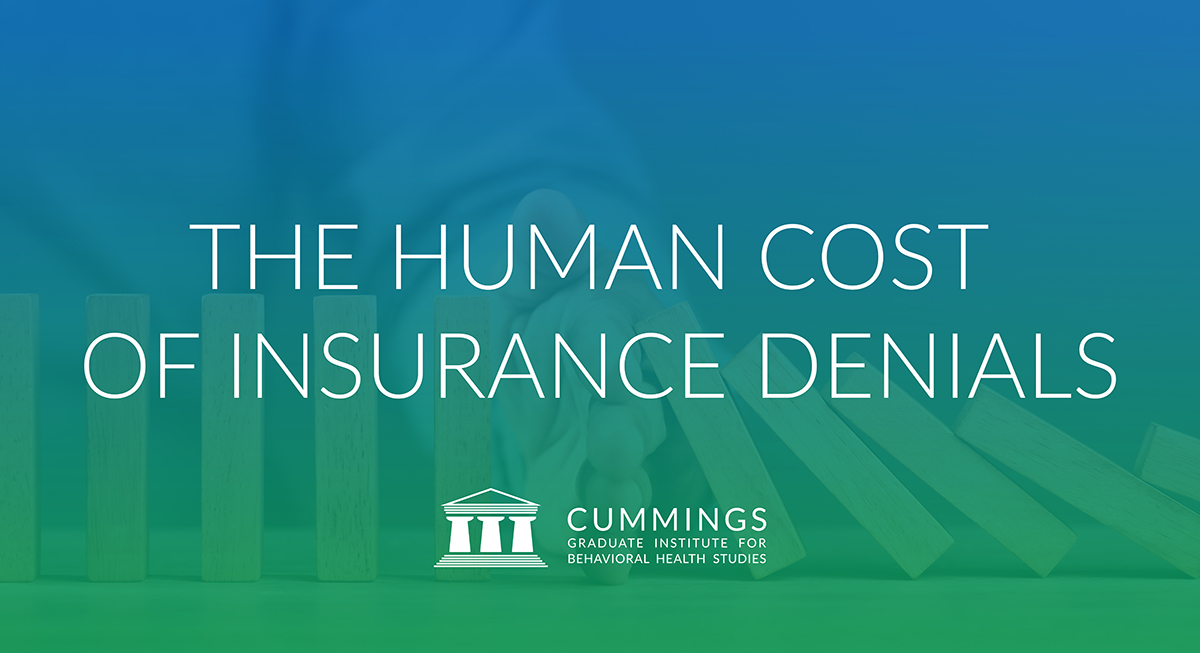New Podcast Episode Spotlights How Insurance Denials Put Patients And Providers At Risk
In the latest episode of Disruptors at Work: An Integrated Care Podcast, special host Dr. Cara English, Chief Executive Officer (CEO) and Chief Academic Officer (CAO) of Cummings Graduate Institute for Behavioral Health Studies (CGI), is joined by Dr. Heather Jelonek, CGI Doctor of Behavioral Health (DBH) graduate and Regional Director at McKesson, to unpack the growing impact of insurance claim denials on patient care. They discuss the challenges providers face, the shift toward value-based care, and how DBHs are uniquely prepared to bridge payer-provider gaps while keeping patients at the center of healthcare. Tune in to learn how integrated care leaders are reshaping the future of reimbursement and access.
Thank you to our subject matter experts:
-
-
- Dr. Cara English, DBH
- Dr. Heather Jelonek, DBH, LAC
-
About the Subject Matter Experts:
Dr. Cara English, DBH

Dr. Cara English, DBH is the Chief Executive Officer and Chief Academic Officer of Cummings Graduate Institute for Behavioral Health Studies (CGI) and Founder of Terra’s Tribe, a maternal mental health advocacy organization in Phoenix, Arizona. Dr. English spearheaded a perinatal behavioral health integration project at Willow Birth Center from 2016 to 2020 that received international acclaim through the publication of outcomes in the International Journal of Integrated Care. Dr. English served as Vice-President of the Postpartum Support International – Arizona Chapter Founding Board of Directors and co-chaired the Education and Legislative Advocacy Committees. She currently serves on the Maternal Mortality Review Program and the Maternal Health Taskforce for the State of Arizona. She served as one of three Arizonan 2020 Mom Nonprofit Policy Fellows in 2021. For her work to establish Cummings Graduate Institute for Behavioral Health Studies, Cara was awarded the Psyche Award from the Nicholas & Dorothy Cummings Foundation in 2018 and is more recently the recipient of the 2022 Sierra Tucson Compassion Recognition for her work to improve perinatal mental health integration in Arizona.
Dr. Heather Jelonek, DBH, LAC

Dr. Heather Leigh Jelonek was born and raised in the greater Chicagoland area. She completed her Bachelor’s Degree in Biology at the University of Illinois – Chicago before beginning her healthcare career at First Health Group Corp., where her passion for integrating healthcare began. As she rose within the ranks of the health insurance industry, she earned her Master Degree in Clinical Psychology at Benedictine University in Lisle Illinois. Heather holds professional licenses in the States of Illinois and Arizona as a Counselor specializing in childhood and adolescent behavioral health. Throughout her career, Dr. Jelonek struggled with closing the mental health gap with the healthcare industry and viewed this obstacle as the primary threat to the spiraling costs of healthcare. Her current role as Managing Director of Bright Health Care of Arizona created new opportunities to improve healthcare integration, improve outcomes and reduce costs from a trauma informed approach. During her studies at Cummings Graduate Institute, she was introduced to the ground breaking CDC/Kaiser Adverse Childhood Experiences study and the connection between the long-term medical costs associated and unaddressed childhood trauma. Dr. Jelonek currently resides in Phoenix, Arizona with her two furkids, Briony an English mastiff and Otto a blue heeler mix. She spends her free time hiking, gardening and challenging beliefs that mental health is different than medical health.































